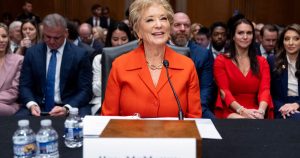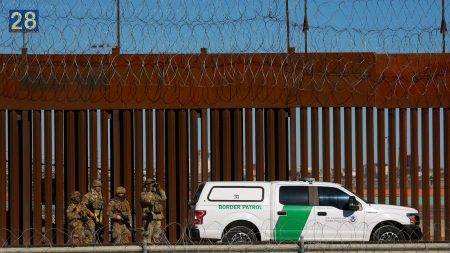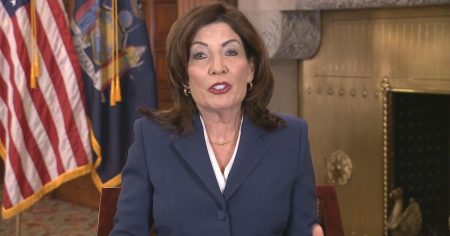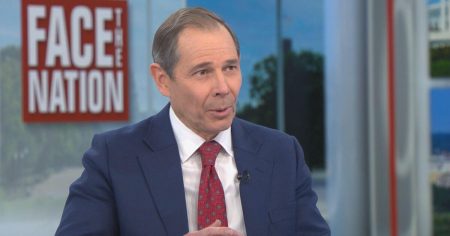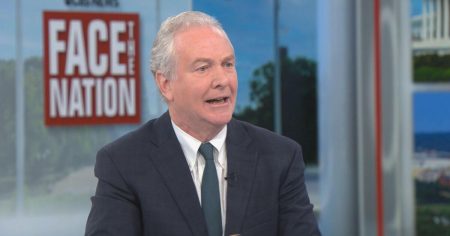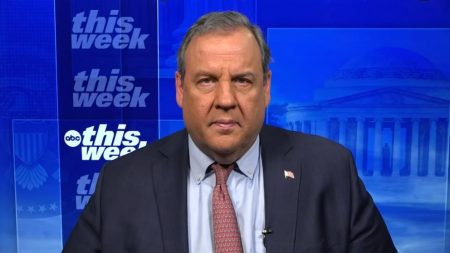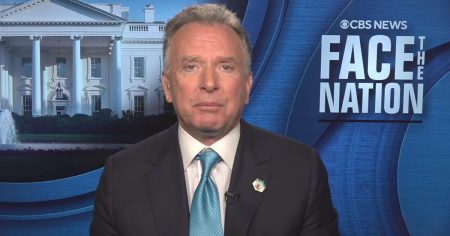Republican Senators Walk a Fine Line on Trump’s Ukraine Comments
Introduction
On Wednesday, Republican senators found themselves navigating a delicate political landscape as they addressed President Donald Trump’s controversial remarks about Ukraine’s President Volodymyr Zelenskyy and the ongoing conflict with Russia. While many senators avoided directly criticizing Trump, they made it clear that they opposed Russian President Vladimir Putin’s aggression and supported Ukraine’s right to defend itself. The situation highlighted the challenges Senate Republicans face in balancing their loyalty to Trump with their commitment to U.S. foreign policy and global stability.
The GOP’s Careful Balancing Act
Senate Majority Leader John Thune encapsulated the GOP’s cautious approach when he emphasized support for a peaceful resolution to the Ukraine conflict without directly addressing Trump’s inflammatory comments. Thune stated, “I think what I’m in support of is a peaceful outcome and result in Ukraine,” and highlighted the administration’s efforts to achieve that goal. Similarly, Missouri Sen. Josh Hawley deflected questions about Trump’s claim that Zelenskyy is a dictator, stating, “I wouldn’t say that,” but pivoted to argue that Trump’s criticism of Ukraine’s suspension of elections during wartime was valid. Many Republican senators echoed this strategy, disagreeing with Trump’s characterization of Zelenskyy but avoiding outright criticism of the president.
Strong Rebukes of Putin, Support for Ukraine
While Republican senators were reluctant to confront Trump’s remarks directly, they were vocal in their condemnation of Putin. Sen. John Kennedy of Louisiana delivered a scathing assessment, calling Putin “a gangster with a black heart” and comparing him unfavorably to historical figures. Kennedy clarified, however, that he believed Trump’s criticism of Zelenskyy was part of a broader effort to negotiate a peace deal that would weaken Putin and benefit Ukraine, Europe, and the United States. Other senators, such as Sen. Chuck Grassley of Iowa, also focused their criticism on Putin, with Grassley labeling him a “dictator” and “murderer” responsible for the war.
Some Senators Break Ranks, Others Remain Silent
A few Republican senators, such as Sen. John Kennedy, signaled a potential break with the White House over the question of who started the war, with Kennedy unequivocally stating, “I do not think that Ukraine started the war. I think Vladimir Putin did.” However, most senators avoided taking a clear stance on this issue. Many, including high-profile lawmakers like Sens. Lindsey Graham, Jim Risch, and Tom Cotton, declined to comment on Trump’s remarks altogether. Some, like Sen. Roger Wicker of Mississippi, sidestepped questions by citing their busy schedules or the need to review the statements before responding.
A Handful of Senators Support Trump’s Approach
Not all Republican senators were critical of Trump’s remarks. Missouri Sen. Eric Schmitt emerged as one of the few who openly supported Trump’s approach, praising the president as a “master negotiator” and expressing confidence that Trump would deliver a lasting peace. Schmitt also emphasized the human cost of the war, stating, “A million people have died, and thankfully, we have a president with the guts to stand up on the world stage and try to end this thing.” Schmitt’s comments aligned closely with Trump’s narrative, but he was an outlier among his colleagues.
Republican Senators Unite in Support of Ukraine, Opposition to Putin
Despite their differences over how to handle Trump’s comments, Republican senators were united in their support for Ukraine and their opposition to Putin’s aggression. Senators like Susan Collins of Maine and Mike Rounds of South Dakota praised Zelenskyy’s leadership and reiterated that Putin, not Ukraine, was responsible for the war. Collins said, “I have tremendous admiration for President Zelenskyy, who has courageously led his country during the most difficult time possible.” Rounds added, “I met President Zelenskyy on a number of occasions, and I think he has been a key component in the fact that they’ve been able to withstand the Russian attacks.” This bipartisan-like consensus on Ukraine’s right to self-defense underscored the broader moral and strategic imperative driving U.S. involvement in the conflict.
In conclusion, the Republican senators’ responses to Trump’s comments reflected a complex interplay of political loyalty, strategic diplomacy, and moral conviction. While many avoided confronting Trump directly, their unified opposition to Putin and support for Ukraine demonstrated a shared commitment to upholding democracy and countering Russian aggression. The situation highlighted the ongoing challenges of navigating a deeply polarized political environment while addressing critical foreign policy issues.

